 Petzlover
Petzlover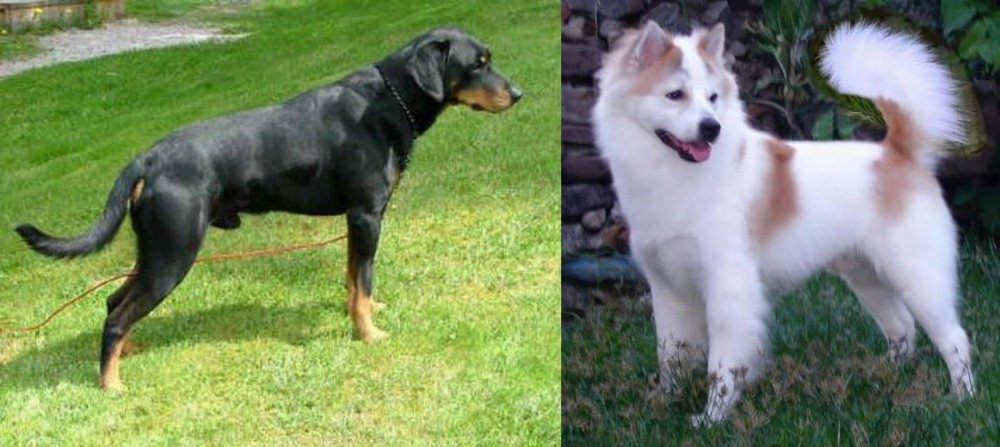 Smalandsstovare is originated from Sweden but Thai Bangkaew is originated from Thailand. Both Smalandsstovare and Thai Bangkaew are having almost same height. Smalandsstovare may weigh 8 kg / 17 pounds lesser than Thai Bangkaew. Both Smalandsstovare and Thai Bangkaew has same life span. Both Smalandsstovare and Thai Bangkaew has same litter size. Smalandsstovare requires Low Maintenance. But Thai Bangkaew requires Moderate Maintenance
Smalandsstovare is originated from Sweden but Thai Bangkaew is originated from Thailand. Both Smalandsstovare and Thai Bangkaew are having almost same height. Smalandsstovare may weigh 8 kg / 17 pounds lesser than Thai Bangkaew. Both Smalandsstovare and Thai Bangkaew has same life span. Both Smalandsstovare and Thai Bangkaew has same litter size. Smalandsstovare requires Low Maintenance. But Thai Bangkaew requires Moderate Maintenance
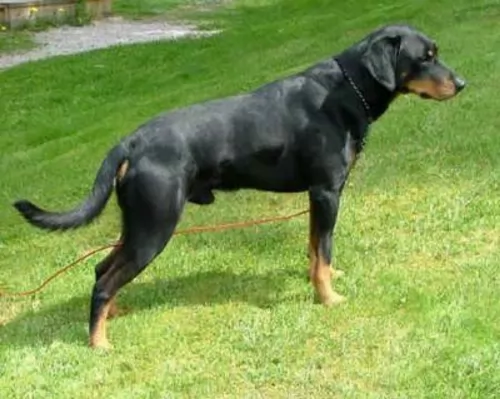 The Smålandsstövare has got quite a long history and dates back to the 1600s. He is the smallest of the Swedish hound breeds. This is a scenthound.
The Smålandsstövare has got quite a long history and dates back to the 1600s. He is the smallest of the Swedish hound breeds. This is a scenthound.
Hounds similar to the Smålandsstövare were bred with European hounds and then brought to Småland and bred with local spitz-type farm dogs to create the foundation stock for the Smålandsstövare.
The dog was used to hunt but nearly died out in the 20th century, but breeders restored it and the first official standard emerged by the Swedish Kennel Club in 1921.
The Smålandsstövare is a rare dog breed but it is recognized by the American Rare Breed Association as well as other major kennel clubs, one of which is the Federation Cynologique Internationale as well as the United Kennel Club.
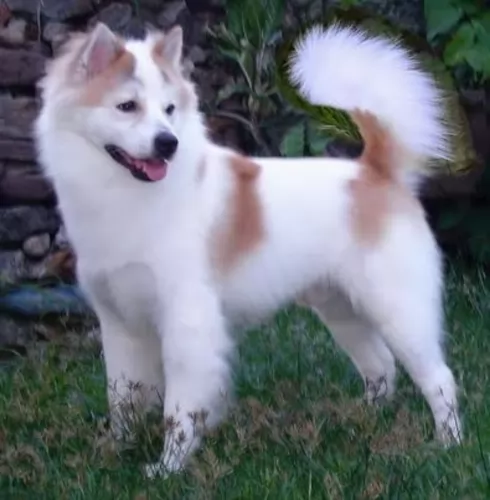 The Thai Bangkaew breed comes from a small village in the Bang Rakarn District of the Phitsanulok Province, in Thailand. The breed is named after that village of Bangkaew. A wild dog was crossed with a Buddhist abbot’s black and white female. Today’s Bangkew is the direct result of breeding only from the litters produced from these original two. Some believe the wild dog was a jackal that is now extinct. The breed is similar to a Spitz and is a good hunter and an intelligent family member. However they still maintain some of the wildness of the jackal.
The Thai Bangkaew breed comes from a small village in the Bang Rakarn District of the Phitsanulok Province, in Thailand. The breed is named after that village of Bangkaew. A wild dog was crossed with a Buddhist abbot’s black and white female. Today’s Bangkew is the direct result of breeding only from the litters produced from these original two. Some believe the wild dog was a jackal that is now extinct. The breed is similar to a Spitz and is a good hunter and an intelligent family member. However they still maintain some of the wildness of the jackal.
The Thai Bangkaew was developed to be a guard dog and alert their owners of any strangers or dangers. By 1957 the dog we know today we being developed through selective breeding. They are not recognized today by the AKC. These facts have made it a very rare breed that is hard to find outside southeast Asia. They are great outdoor companions.
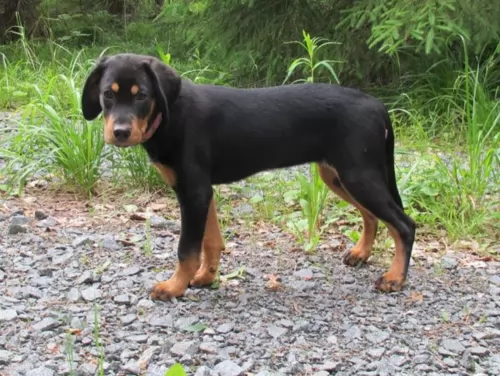 The Smålandsstövare is a muscled, compact looking dog. The double coat is shortish to medium length and is thick and quite coarse to the touch. He sheds seasonally. The coat is usually black with tan markings.
The Smålandsstövare is a muscled, compact looking dog. The double coat is shortish to medium length and is thick and quite coarse to the touch. He sheds seasonally. The coat is usually black with tan markings.
The high set ears are medium length and floppy, the head is slim and the tail can be naturally short. Sometimes the tail is long and can be slightly curved in the spitz-like sabre fashion.
The eyes are brown and friendly. The height of these dogs is about 46 to 54cm and he weighs anything from 15 to 18kg.
Usually a well behaved, quiet, calm, gentle dog, the Smålandsstövare takes his role as guard dog seriously, wanting to protect his family.
His good temperament ensures he gets on well with all members of the family. He is full of energy and will need to be exercised well, whether it be ball games in the garden, a walk around the block, a run in the park or joining his family on hikes and camping trips.
It is why he won’t settle down well on a small property in the city. He needs larger premises to expend his energy, and if in cramped premises without exercise, he may resort to barking and whining and this may well drive your neighbors bats.
Training and socializing your Smålandsstövare will be necessary and it should be easy as he is intelligent.
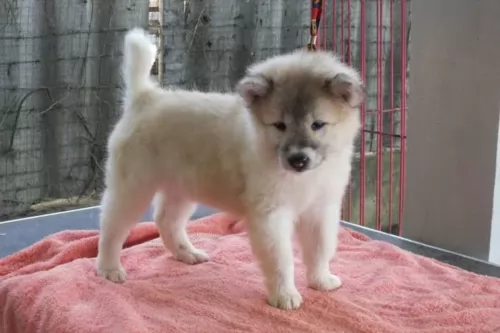 A compact and square dog, the Thai Bangkaew is a well proportioned breed with a gait that is smooth. They have a deep, wide chest with muscular and strong neck. The head is also square, the ears pointed and the eyes brown and average size. They have a double coat and a longer, thicker ruff. Their chest and back also have a ruff like a lion. The tail is plumed and carried up high and curves over the dog’s back. Their coat is water-repellent.
A compact and square dog, the Thai Bangkaew is a well proportioned breed with a gait that is smooth. They have a deep, wide chest with muscular and strong neck. The head is also square, the ears pointed and the eyes brown and average size. They have a double coat and a longer, thicker ruff. Their chest and back also have a ruff like a lion. The tail is plumed and carried up high and curves over the dog’s back. Their coat is water-repellent.
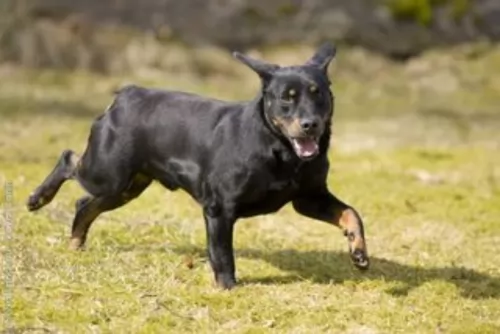 The Smålandsstövare is a robust dog with a lot of stamina. He will be wanting a lot of exercise and is ideal as a pet in the suburbs or the countryside but not ideal for city living.
The Smålandsstövare is a robust dog with a lot of stamina. He will be wanting a lot of exercise and is ideal as a pet in the suburbs or the countryside but not ideal for city living.
He makes a wonderful family pet, forming strong bonds with his owners. He makes an excellent watchdog too wanting to protect his family, and with this amicable, calm dog, you’re going to have a true friend.
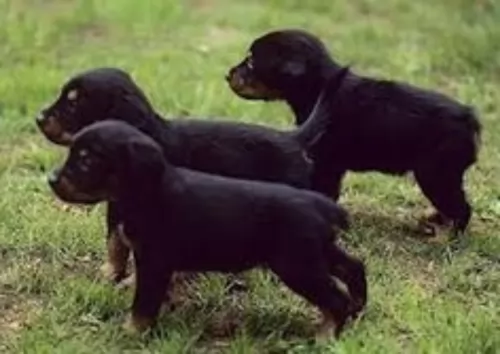 The Smålandsstövare is a rare dog breed and not much is known about congenital conditions to which he may be particularly prone.
The Smålandsstövare is a rare dog breed and not much is known about congenital conditions to which he may be particularly prone.
With good care he can reach 14 or 15 years of age. The floppy ears put him at risk for ear infections, while other conditions to watch for include hip dysplasia, cancer, bloat and obesity.
If you see your dog shaking his head or pawing at his ears, look inside because the ears may be red and inflamed. It is important to get help quickly for ear problems in dogs.
Ear canals are sensitive so if you don’t want to clean the ear and work on it yourself it is important to get your pet to the vet. The vet will clean your dog’s ears and also prescribe antibiotics.
For future treatment, you will need to clean your dog’s ears and keep them dry. If you don’t want to do this yourself, make sure to get him to professional groomers who will do this for you.
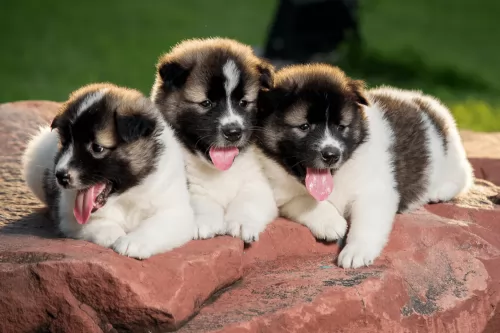 This is a very healthy breed with a relatively clean genentic pool. The dogs tend to be healthy. They have no congenital health issues. However they do contract some normal canine issues.
This is a very healthy breed with a relatively clean genentic pool. The dogs tend to be healthy. They have no congenital health issues. However they do contract some normal canine issues.
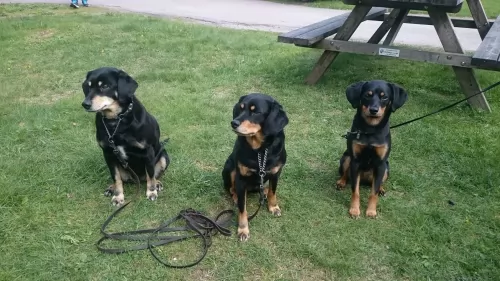 Choosing a good diet is imperative for the Smålandsstövare. Choose a commercially manufactured dog food high in vitamins and minerals.
Choosing a good diet is imperative for the Smålandsstövare. Choose a commercially manufactured dog food high in vitamins and minerals.
Give your dog a treat by providing him with some home-made food. It can be added into the dry kibble about twice a week as a treat. Boil brown rice and chicken in a pot and add in sweet potatoes, carrots and spinach. Chop all this up and give it to your dog in small portions. Also try to include some raw meat into the diet.
The Smålandsstövare is a very energetic breed and he is going to require some vigorous exercise every day. Take him for walks, allow him to run with you when you cycle or jog or take him swimming.
 . Feeding the puppy Feed a high quality high protein puppy food for medium sized dog. Feed 2 cups in 3-4 meals per day.
. Feeding the puppy Feed a high quality high protein puppy food for medium sized dog. Feed 2 cups in 3-4 meals per day.
2.Feeding the adult Feed a high quality high protein adult food for medium sized dog. Feed 2.5 cups in 2 meals per day
4. Games and Exercises they need daily exercise and they love to swim. He loves to dig and is a climber as well. Good at herding, barnchase.